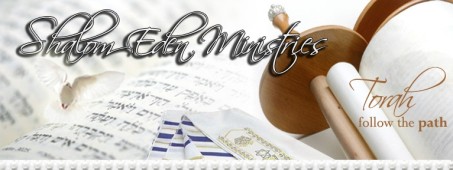BIBLE STUDY LESSON 07
SAMUEL’S LEADERSHIP
THE THUNDER THAT WON A GREAT VICTORY
From 1 Samuel 7:3-17
“After the Ark of the Lord returned to Israel, Samuel talked to his people. ‘If you truly want to serve the Lord, put away your foreign gods and the Ashtaroth idols. Serve the Lord with all your hearts and He will save you from the Philistines.’ The people of Israel did as Samuel said, putting away their foreign gods and Ashtaroth idols and serving the Lord alone. ‘Let us gather at Mizpah and I will ask the Lord to help you,’ Samuel told the people. The people gathered at Mizpah to worship the Lord. As an act of devotion, they took water from a well and poured it out before the Lord. All day long they refused to eat as a token of their repentance for their sins. That day at Mizpah, Samuel became judge over Israel. But when the Philistines heard that the people of Israel had gathered at Mizpah, they marched against them. The Israelites were terrified to hear that the Philistines were approaching and begged Samuel for help. ‘Keep crying to God to save us!’ they pleaded. Samuel did cry to the Lord for help, presenting a suckling lamb as a burnt offering. As Samuel was presenting this burnt offering, the Philistines made ready to attack. But the Lord sent thunder from heaven, confusing the Philistines. The Israelites attacked at once, chasing the Philistines from Mizpah to Beth-car and killing them as they went. As a memorial to this great victory, Samuel placed a stone between Mizpah and Jeshanah and named it Ebenezer, for the Lord had helped them overcome the Philistines. The victory was so complete that the Philistines did not come again to the lands of the Israelites for a long time. As long as Samuel lived, the Lord helped Israel restrain the Philistines. Also, the cities from Ekron to Gath, which the Philistines had taken from Israel, were returned to them. There was peace at last between Israel and the Amorites. Samuel remained as Israel’s judge for as long as he lived. Each year, he went on a circuit, judging Israel at Bethel, Gilgal and Mizpah. From Mizpah, he returned home to Ramah, where he had built an altar and judged Israel in that city also.
COMMENTARY
SAMUEL’S CIRCUIT
During his later life Samuel led Israel in a great return to the Lord. During his lifetime the Philistines were held outside Israelite territory and God gave His people peace. The power of God proved greater than the might of Philistine armies. Shortly after the Israelites entered the Promised Land, Joshua set up the tabernacle at Shiloh. There it remained for three hundred and fifty years, throughout the period of the Conquest and the Judges. Toward the close of the period of the Judges, the Israelites suffered a severe defeat by the Philistines, who probably destroyed the tabernacle at Shiloh, and thus destroyed the central place of worship for all Israel. Samuel moved from Shiloh to Ramah, where his parents had lived. He became the spiritual leader of Israel in place of Eli, but instead of bringing the people to him at a central place, Samuel travelled in a circuit of Bethel, Mizpah and Gilgal, meeting with the people at each place. Thus he became a travelling judge and was assisted by a group of prophets who helped him speak out against the worship of pagan gods.
TEST YOURSELF
1.) Where did Samuel gather the people of Israel for worship?
A) Jerusalem
B) Hebron
C) Mizpah
D) Gibeon
2.) Who decided to attack the Israelites while they were worshipping?
A) The Egyptians
B) The Philistines
C) The Moabites
D) The Edomites
3.) What did Samuel call the stone he set up in memorial of God’s deliverance from their captors?
A) Shiloh
B) Talius
C) Nephrim
D) Ebenzer
4.) Where was Samuel’s hometown?
A) Jerusalem
B) Nazareth
C) Beth-Shemesh
D) Ramah
5.) Which of these cities was not on Samuel’s circuit?
A) Bethel
B) Gilgal
C) Mizpah
D) Jerusalem |
